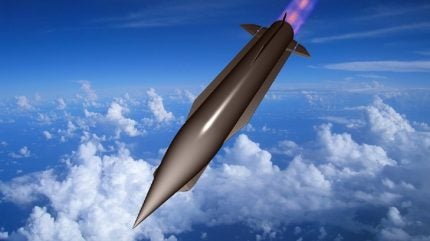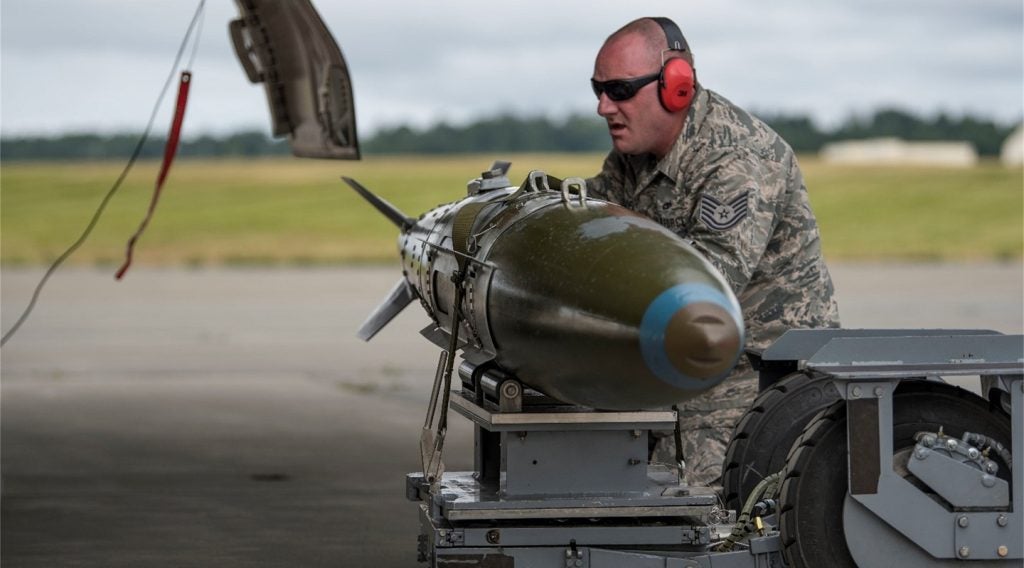
Some 90 organisations from across industry and academia have secured a place within Britain’s new £1bn ($1.25bn) hypersonics and capability development framework (HTCDF).
Hypersonic refers to aerial objects – aircraft, missiles, rockets – that can reach speeds through the atmosphere greater than Mach 5, or five times the speed of sound, (nearly 4,000 miles per hour). At the same time, this high-speed tech must also be manoeuvrable mid-flight.
China, Russia and the US are all testing hypersonic technology, generating fears of escalating global competition for weaponry that has the potential to render current defences inadequate.
In an effort to develop a sovereign hypersonic strike capability, the UK has opened up the bidding process for contracts under HTCDF in line with the government’s new procurement ecosystem known as the Integrated Procurement Model (IPM).
The HTCDF initiative is led by the Ministry of Defence’s (MoD) Team Hypersonics UK, while the award of contracts on the framework will be managed by commercial experts at Defence Equipment and Support (DE&S).
The HTCDF will also re-open to new suppliers every six to 12 months to ensure that the MoD can continue to draw upon new technologies and emerging market capabilities.
How well do you really know your competitors?
Access the most comprehensive Company Profiles on the market, powered by GlobalData. Save hours of research. Gain competitive edge.

Thank you!
Your download email will arrive shortly
Not ready to buy yet? Download a free sample
We are confident about the unique quality of our Company Profiles. However, we want you to make the most beneficial decision for your business, so we offer a free sample that you can download by submitting the below form
By GlobalDataDelivering emerging hypersonics at pace
DE&S stress the importance of delivering in a timely manner.
Under the new IPM, which is still due to reach minimal viable product in early 2025, the government hopes to confront presumptions right from the outset by taking a cross-departmental approach to the programme form the start of acquiring a solution from the contractor.
The new model is a proven concept given DE&S received the first of its new Archer howitzer systems from Sweden just six months after the government signed the contract. However, it may prove more complicated to deliver an evolving technology, which has yet to enter the global defence market in a fully fledged state of application.
Although Russia’s use of its ‘hypersonic’ Kinzhal missile in Ukraine has been confirmed, while Ukraine’s Armed Forces have also claimed the first successful interception of such missiles, this is slightly misleading. Kinzhal is not technically a hypersonic weapon; while it does reach Mach 5 it is not as manoeuvrable as it ought to be to qualify as a hypersonic missile.
Likewise, the US has culminated in fielding its first hypersonics platform in 2023, the Conventional Prompt Strike (CPS) system – a glide vehicle with a boost system – for its Zumwalt-class destroyers. GlobalData intelligence projected this system to dominate proposed spending in 2023, accounting for 44.1% of the nation’s missiles and missile defence budget.
Yet, it should be understood that the installation of the CPS is part of a middle tier of acquisition in the US Navy’s second phase of development. This is a pathway used to rapidly develop fieldable prototypes within an acquisition programme which means the programme remains at a very early stage.
Nonetheless, “hypersonics will be a landmark capability of the future and it is essential that we keep pace with the developments of our adversaries,” the UK Minister for Defence Procurement, James Cartlidge, stated.







